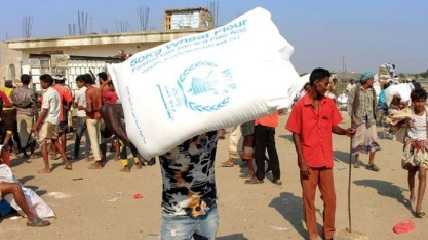
NEW YORK, Sept. 19 (Xinhua) -- Speculative behaviors of Wall Street firms and grain giants in the global market, and the U.S. government's support for such businesses, have aggravated the worldwide food crisis amid the ongoing Ukraine conflict, a U.S. expert has said.
Frederic Mousseau, policy director at the Oakland Institute, pointed out that a major problem is the jump of prices resulting from market speculation by investment companies and big food corporations.
As soon as the Ukraine crisis started, "a number of speculators jumped on the market to buy futures of food, to bet on the market. So prices became very high," said Mousseau in a recent interview with Xinhua.
The expert, who has been working on the subject for nearly two decades, argued that the global food market is largely dominated and controlled by a handful of U.S. and European businesses.
"We've seen huge profits from these firms in this past year," Mousseau said, citing soaring profits of global food giants.
These companies have benefited from the increasing prices, at the expense of many poor countries who could not purchase adequate food on the global market because of the "crazy" manipulation, Mousseau said.
Data from the Food and Agriculture Organization (FAO) showed the Food Price Index increased to 159.7 in March, up from 135.6 this January and 125.7 in 2021.
In addition, the U.S. government's decades-long protection of the country's large agribusinesses has contributed to the food crisis, the expert said.
The United States failed to take any measures to curb speculation, and it supported funds and banks in taking shares or investing on a large scale in the agricultural sector overseas, including in Ukraine and Africa, Mousseau said.
Big investment firms in the United States have invested in almost all agrochemical companies concerning the fertilizer, seed and pesticide sectors, the expert said.
The U.S. decisions in terms of agri fuels, support to farmers, and whether they export or keep the supply and what to do with production have a big impact on global markets, Mousseau said.
Describing the United States as "hypocritical," he said that while Washington told other countries "not to restrict trade, not to protect their market, not to restrict exports, the United States is dominant in the market."
The policy expert also proposed that the most vulnerable countries should take measures to enhance their own food security, including reducing their dependence on food imports and promoting local crop production.




